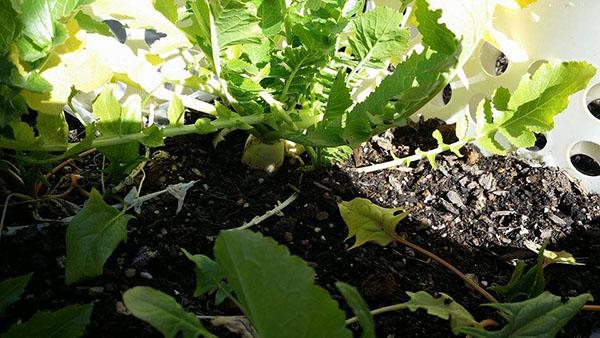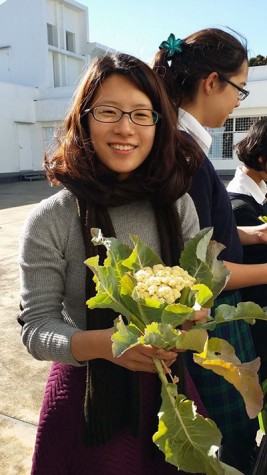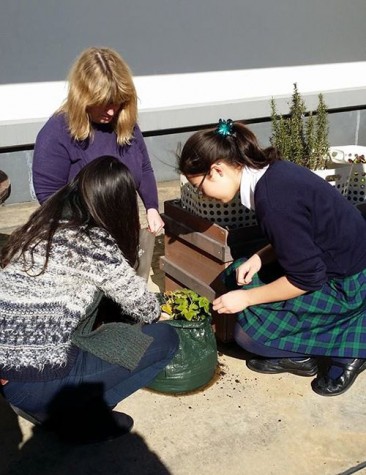The Rooftop Garden Club flourishes
Rooftop Garden Club successfully grows vegetables while maintaining connections to SEEDS Nepal.

Utako (12)
The vegetables that the club has been growing
The Rooftop Garden Club led by Kaoru (12) and Julia (12) is determined to maintain a tight relationship between Japan and Nepal.
Currently, the club comprises 11 students from grades 9 through 12. This year the club received some donations of seeds from their sponsors, Mr. Felstehausen and Ms. Pomroy, but they have also held an annual bake sale to raise money to buy vegetable seeds. The club meets once every two weeks to perform various activities such as planting, watering, composting, harvesting, and cooking.

Julia (12) holding a freshly harvested cauliflower.
The garden is currently growing vegetables such as lettuce, cauliflower, daikon, sage, mustard, spinach, and avocado.
In the past, the club has successfully grown basil, mint, and potatoes. Kaoru (12) the current head of the club, said, “Some vegetables are very hard to grow. While the basil we grew a while ago flourished like crazy, our sage ended up being very puny with the same effort.” The club has held sessions to cook pesto-pasta sauce, and they organised a salad and mint tea party to enjoy the crops that they have harvested.
This year the club has also decided to grow vegetables that are being grown in Nepal such as cauliflower (cauli), potato (aloo), and mustard greens (saag). “The rooftop garden club has been growing a parallel garden to Nepal’s as a way to support ISSH SEEDS Nepal,” explains Julia (12). So far they have harvested enough to cook a potato and cauliflower curry also known as dal bhat tarkari.
The rooftop garden club has been active since 2013. The club was founded by alumna, Maya Reyes (‘12), who wanted to grow quinoa in hopes of introducing this protein rich crop to Japan and Nepal. However, growing quinoa in a rooftop garden turned out to be too difficult in Tokyo’s climate. Despite the setback, the underclassmen who wanted to continue growing plants decided to persist.
Julia (12) reflected upon the club’s purpose, “I feel that the club is very beneficial in that it helps students understand and experience growing and cooking food for themselves. It is also meaningful because our club is in a way supporting SEEDS projects by running a parallel garden (to Nepal), and from this we seek to familiar ourselves with Nepali culture and hence support SEEDS.”

Ms. Pomroy and students planting vegetables.
















































